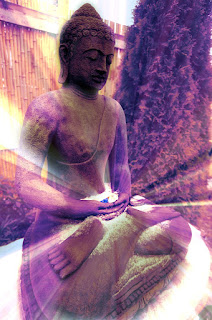I invited the students in my ENL 221: Mindful Writing course to share their thoughts on groundlessness with you.
Authors: Dasia
Dobbs, Meghan Miraglia, J. G. Bova, camryn rose, Bailey Hughes, J.P, Gabrielle
Vitiello, Sofia Ciriello, Iliana De Peña, R. LeBlanc Lutts, Casey Saraceno, Joseph Tadesse, Matthew Lydon, and
Phoebe Leo.
QUESTION 1: How would you explain
groundlessness to a friend or family member?
I would explain groundlessness as a form of recognition without preconceptions, being open to
what is already happening but not too fixated on it.
Groundlessness is letting go of all control, all preconceptions,
ideas, opinions, etc.
I would explain groundlessness as letting go of your
preconceptions and start looking at everything around you with a benign
indifference. The world is what it is and you are just floating in it.
Groundlessness is the acceptance that
there is no ultimate answer or destination or reason for being. It is the
ability to accept everything and nothing simultaneously.
Groundlessness is being
more open minded to the ideas of things in question, it is a question with the
answer being more willing to listen to more ideas.
Groundlessness is a state
of knowing and unknowing in which people simultaneously find comfort and
discomfort all at once; the notion that our existence simply is.
Groundlessness is the
complete release of depending on things that keep you numb. You may think
you're secure, but groundlessness pushes you to a space of deep discomfort and
lack of control.
Groundlessness is just
being okay with the fact that nothing stays the same.
Groundlessness is not
holding onto your teachings as the rule because there is more to everything
than what you were taught and you should be open to experiencing more.
Groundlessness is a being
open minded to things going on in your mind.
Realizing that nothing is
permanent and just accepting that everything is constantly changing. Just like
our breath is constantly changing so is everything else, nothing will stay the
same.
Groundlessness is the state
of letting go of preconceptions and other thoughts.
Groundlessness is the idea of truly
understanding and being able to accept change. Everything changes all the time
everyday, every second.
The way that I would explain
groundlessness is that it's an idea where you would not hold on to things and
make room for other things without clinging to one idea.
I would explain this as a
way of letting go of all other perceptions so that they do not reflect and
cause me to hold onto preconceived thoughts. This can cause you to lose your
own wisdom.
QUESTION 2: Why should we be interested
in groundlessness?
You should be interested because it gives
us the freedom to simply be and to exist without fear—since whatever you're
doing is enough.
Doing this will not hold you back to new experiences, ideas,
opinions, etc. if you cling on to something or don’t challenge yourself, you
are vulnerable.
We should be interested in
groundlessness because anything that keeps us dependent keeps us unreal. These
things we over-rely on make us unknowable, even to ourselves. Groundlessness
helps us accept change and accept the fact that the things we cling to are
already decaying.
You should be interested
due to the fact it is a way to enlighten your mind, a way to develop and keep
growing as an individual. A way to become a better person.
You should be interested in
groundlessness because your habits might not be you. They may be because of
someone else and in that case you should try and let go of them to discover
more.
We should be interested in groundlessness
because by detaching from our worldly
concerns or responsibilities, even those that give us feelings of security, we
can see what comes to us in our state of emptiness without the influences of
other things.
You should be interested in it because
Pema Chodron mentioned it allows you to connect with the mind that knows no
fear. Accepting that things are constantly changing and you shouldn't hold onto
the concept of anything. This allows for no suffering and to really connect
deeper with your mind.
The way that groundlessness can be
applied is that it could be helpful when trying to learn something new and the
topic is always changing so it would be not a good idea to cling to one.
This is something to take interest in
because without this idea we can easily fall behind or become “vulnerable” to
multiple things surrounding us like: ideas, definitions, topics, beliefs, etc.
If you’re not noticing and accepting
groundlessness, you allow fear to get in the way of your being.
Groundlessness is interesting because it
detaches one from everything and nothing at the same time. It is a state in
which people can delve deeper into the connections that lie all around them.
Groundlessness is the opposite of being
grounded, because if you find something to ground yourself with that
"something" could change and throw you off your course again. So you
can't root yourself in anything and be completely safe. Hence, accepting
groundlessness.
It allows us to be open minded and let things go.
QUESTION 3: How should a person
practice groundlessness?
Start by realizing that emptiness is a
form. If you pull away from it and get rid of it, you are able to start the
process.
We can practice this by letting thoughts
go as they come in and releasing our preconceptions. Not just things that
trouble or worry us, but also those that we typically love or enjoy.
How you should practice groundlessness is
really hard for me to explain. I feel like learning the term and what it really
means is a start; once your mind can wrap around the idea of groundlessness,
your mindset may be able to slowly be altered to try and fulfill a kind of
groundlessness, even if it isn’t all at once. Yeah.
We can practice groundlessness by understanding that there is nothing to hold onto, including the teaching that there is nothing to hold onto. We should also question and experiment with things our "teachers" tell us: we should accept nothing without thoughtful inquisition.
To practice groundlessness, I believe you have to remind yourself constantly about what you are doing and why you are doing it. Are you doing it because you are curious and are trying to learn from all different sources so you can gain your own thoughts or are you doing it because that is exactly what you were taught to do so it is comfortable?
Learn to question but actually listen and absorb.
I would say that groundlessness is a state, it simply is. I think that it is unwise to call it something to achieve. I think it would be possible to practice it by doing and not attaching yourself to the idea of it.
You can practice by challenging your thoughts and asking yourself “why” when you are doing things. Maybe the “why” is because that is what the teacher is asking us to do to complete the assignment. But that is all it is, it is not a fundamental, universal reason for doing it.
The way that you can apply this is to not accept things the way they are but make sure to keep an open mind.
Practice it by just accepting what is there and don't judge, perceive, or hold onto it. Just let it be, whatever happens, happens. Maybe just take everything that you believe and accept that it is not real or permanent. It is not going to be there forever.
Find comfort in things but don't get too comfortable so that when things change it won't be as detrimental or surprising.
How to practice this? Is never holding too hard onto anything. Understand that these should all be loosely understood in your mind. No matter how factual it may seem, you don't know if it will change one day. Holding on and believing everything you think is true will never change can be dangerous.
By not being attached to anything and keep learning more different
perspectives and ways of thinking.

